南加半岛高中2华生膺选总统学者 1校2华生获选罕见
世界新闻网
5/17/2022
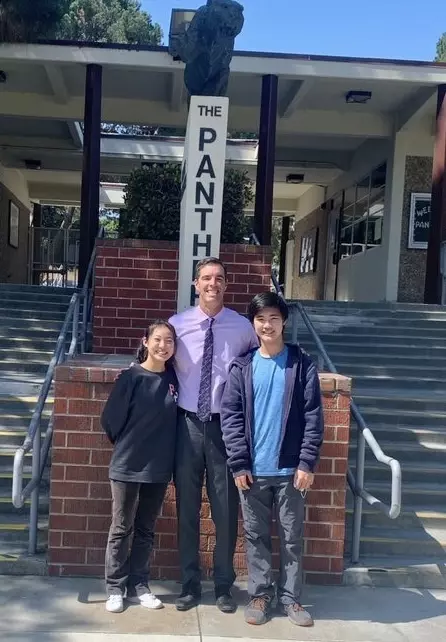
联邦教育部本周公布了第 58 届美国总统学者(U.S. Presidential Scholars)名单,表彰 161 名高中毕业生在学术、艺术、职业和技术教育领域的成就。加州有六名学生膺选,包括派洛斯福德斯半岛高中(Palos Verdes Peninsula High School)的何维莲(Vivien He,译音)和迟安德(Andrew Chi,译音);膺选总统学者被视为美国高中生的最高荣誉,一校两人同年获选,而且都是华裔,相当罕见。
半岛高中校长Brent Kuykendall博士发文指出,本校很荣幸能够有两名学生Andrew Chi 和 Vivien He成为今年美国总统学者。这是一项了不起的荣誉,因为这些学生是全国仅有的 161位学者中的两名,加州仅有六名学生获得该荣誉。因此,全校师生皆为他们感到骄傲!
白宫总统学者委员会根据候选人的学术、艺术和技术成就、论文、学校评估和成绩单,以及对社区服务和领导力的表现来评选学者。今年全国约有370 万名高中毕业生,其中超过 5000人有资格获得 2022 年奖项,这些奖项取决于他们在SAT 或 ACT 考试中的出色表现,或有各州教育厅长或青年艺术家基金会等合作伙伴的推荐。
今年1月下旬,何维莲以科研项目「Qube:用于现场和区域地震预警的低成本物联网设备」,入围享有「少年诺贝尔奖」美誉的雷杰纳隆科学奖(Regeneron Science Talent Search 2022)40人决赛名单,入围者被认为展现了成为改变世界的科学家和领导者的潜力,每人获赠2万5000元奖学金。此外,她的标准考试成绩也十分了得:ACT满分36;SAT 学科考试生物学满分800,SAT数学二级(Math Level 2)考试满分800。今年秋季她将进入加州理工学院(Caltech)深造。
她的同学迟安德也同样出类拔萃,2020年曾在在线高中生独奏和室内乐比赛中,演奏柴可夫斯基-D大调小提琴协奏曲,获得小提琴独奏冠军。本周他又被国家优秀奖学金组织 (NMSC®)膺选为 2022 年国家优秀学者(National Merit Scholars)。这是一个享有盛誉的年度2500 名高中毕业生的荣誉称号,每人获颁2500元奖学金资助大学深造。今年秋季,他将攻读计算机工程专业。


洛县华裔过半学区 获常春藤等名校逾200份录取通知
世界新闻网
5/11/2022
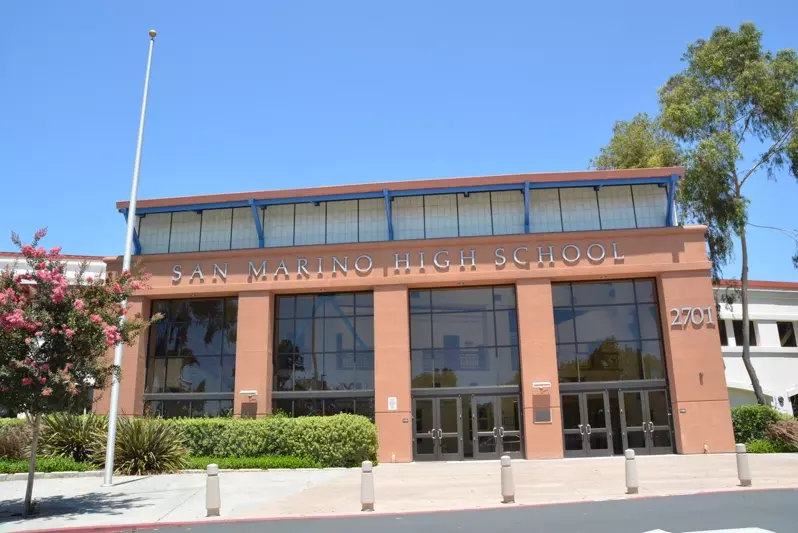
华裔学生过半的洛杉矶县圣玛利诺学区(SMUSD)10日向家长们报告喜讯,圣玛利诺高中(SMHS)2022届毕业生迎来了又一个升大学丰收年,亮点包括20多人进入常春藤盟校(Ivy League schools)等私立顶尖大学、33人一举被柏克莱加大(UC Berkeley)录取,近百人将迈入全国一流公私立名校大门,在疫情干扰下仍然交出一份漂亮成绩单,学区全体教职员工都为 2022 届毕业生感到兴奋和自豪!
在全国范围内,五所常春藤大学向圣玛利诺高中发出六份录取通知,包括普林斯顿(Princeton)、布朗(Brown)、哥伦比亚(Columbia)、宾州大学(UPenn)、康奈尔(Cornell)。此外,同学们收到了全国约30所顶尖大学的录取通知,包括麻省理工(MIT)、加州理工(Caltech)、霍普金斯大学(Johns Hopkins)、Harvey Mudd学院、克莱蒙学院(Pomona)、西北大学(Northwestern)、乔治城大学(Georgetown)、纽约大学(NYU)等。
在加州范围内,圣玛利诺高中收到了加州大学(UC)各分校超过170份录取通知,其中,柏克莱加大(UC Berkeley)33份录取通知、洛杉矶加大(UCLA)10、圣地牙哥加大(UCSD)13、尔湾加大(UCI)10、圣塔巴巴拉加大(UCSB)17。此外,南加州大学(USC)也录取了15人。

圣玛利诺学区教委张志坚指出,全体教职员工和学生家长排除疫情干扰,携手向社区递交了这份漂亮成绩单。尽管当前名校招生取消了标准考试,使以考试见长的华裔学生失去一个展现学术实力的平台。但是,学生们在AP课程和基础课程方面下功夫,坚持参加课外活动和社区服务,并且得到家长和社区全力支持,对于维持教育品质、提高升学率发挥了重要作用,推动圣玛利诺高中迎来又一个丰收年。
学区教育总监Linda de la Torre博士指出,可能还有其他学生已被录取,但尚未将他们的录取通知书上传到高中Naviance 系统。一旦所有学生都确定了他们将在秋季报到的大学或学院,高中行政部门将向学区教育委员会提交一份毕业生新学年就读的综合报告。她表示,她为学区的老师、辅导员和管理人员所做的工作,帮助学生为高等教育之旅做好准备感到无比自豪。众多毕业生进入知名大学深造,证明了学区教学有方,绩效出色,不负众望。
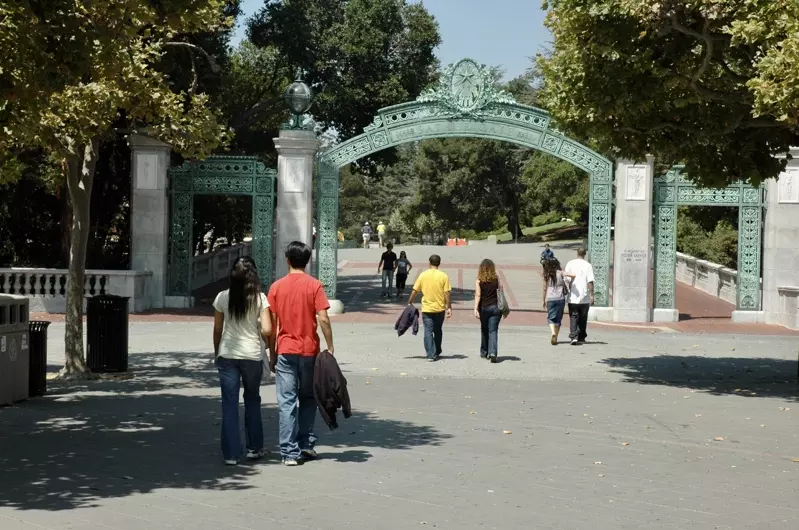
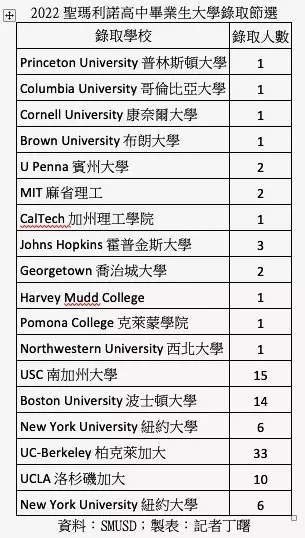

大陆教育机构进军美国 也刺激南加机构与时俱进
世界新闻网
4/28/2022

疫情加上中国政府的「双减政策」,多家大陆网络教育培训机构或主动或被迫「出海」,尤其是中文培训、绘画教学、数理逻辑培养等课程,纷纷进军美国市场,分掉了不少美国华人教育培训这块本就有限的蛋糕。不过这也刺激美国本地的教培行业与时俱进,且如今美国疫情好转,部分华人家长又转回了本地的线下课程。
华人家长最近两年常会看到多家大陆网络教育培训机构广告在网络上铺天盖地,许多家长也给孩子报了这些培训课,例如学画的画啦啦、美术宝,学中文的悟空中文、LingoAce,学逻辑的火花思维、豌豆思维等。

到了去年,因为中国政府实施「双减政策」,让一些原先已经发展成上市公司规模的教培行业巨头都被迫停业,不得不出海求生,于是有了如新东方推出「比邻中文」(Blingo),学而思推出Think Academy等。虽然只是这些公司的求生策略,且到美国不久,但毕竟背后是在纽交所敲过钟的公司,在教育方面的资源、财力和经验都丰富,自然会对美国本地的中文学校、华人补习班等小规模机构造成不小的冲击。
据不少华裔家长反映,在疫情伊始,这类来自大陆的网课确实非常火。因为当时学校停课,孩子在家上这类网课好歹能学点东西。在大陆实行「双减政策」后,甚至有家长「翻墙」让孩子来上海外的培训课。虽然美国本地的培训班也有网课,但师资和服务有限。比如像有教画的机构,会给孩子邮寄反射镜和支架,让老师可以实时看到孩子绘画的角度。一些网课机构除了教学老师,每个孩子还有一个班主任、一个教学顾问,等于三个老师服务一个孩子,孩子还可以挑选喜欢的老师。而美国本地的网课也可选老师,但选项有限,面授课更受制于住家距离,几乎没得选。
「影响多少还是有,毕竟家长选择多了」,核桃孔孟中文学校校长黄锦云表示,很多本地中文学校都受到影响,但她认为这个影响也是其进步的动力,该校的教学方法一直在与时俱进,不断培训老师。毕竟该校在本地有30多年积累口碑,且教学方式一向生动活泼,重视语言应用、人文教育,注重培养华裔孩子对自己文化的肯定,去年复课后,很多学生都回来了。

「教学质量肯定还是线下更好」,华裔妈妈何女士表示,至少孩子和老师能现场面对面交流。在疫情相对平和之后,她也将孩子的绘画课转回线下。她表示,在线的美术课虽然花样多,每次都有不同主题,但却受限于摄像头,老师无法看到细节或者给出具体线条的指引等,久而久之孩子还是无法精进。她观察表示,恢复面授课后,学生慢慢都回流到本地培训班,但也不能说100%恢复。
另一位华裔妈妈邵女士表示,因为对孩子的教育有一些想法,宁可自己花时间教孩子。但每家父母想法不同,这些网课在海外家长中还是很有市场的。例如她认识的一位妈妈,因为需要长时间在家工作,又没有时间陪孩子学习,这两年给年仅五岁的孩子报了四、五门课,包括芭蕾、中文、思维,甚至甲骨文课。她也能观察到那些上网课的孩子确实有不少进步,像是数学计算就比同龄孩子快。
不过她一直倾向于给孩子报线下课,因为认为面对面的人际交互对孩子更重要,也让孩子可以交到本地朋友,还能常常聚会,既然疫情缓和就没有必要再把孩子关在家中面对电脑。


中资抢滩美教育培训 疫后华人家长选择有道
世界新闻网
4/27/2022

近两年来,许多来自中国大陆的网络教育培训机构进军美国市场,包括中文培训、绘画教学、数理逻辑培养等等课程,犹如雨后春笋般在南加州甚至全美生根发芽,分食美国华人教育培训这块蛋糕,也吸引了众多华人家长的关注。不过如今美国疫情好转,线下课程恢复,这些在线机构依旧火爆吗?后疫情下美国的华人家长为孩子选择教培机构的策略是否发生了变化?本地的教育培训机构,又能不能经受住这波来自中国大机构,乃至上市公司的挑战?今天的世说新闻我们就来一起聊一聊。
Apr 27, 2022

俞敏洪“年终总结”:新东方营收减少80%、辞退6万员工
1/10/2022
“新东方的发展依然是我的责任和使命,这似乎由不得我喜欢不喜欢,必须全力以赴。立定和大家一起共同奋斗的宗旨,让新东方走向下一个发展阶段。”
“年终年初,都是总结过去、规划未来的时节。”俞敏洪称,1月4日、5日,连续两天,新东方总部的各部门和各子公司进行了工作述职,对2021年的工作进行总结,并对2022的工作进行部署。
“一下子就进入了忙乱繁琐的境地,开了很多会议,令人心烦意乱的事情不少。” 俞敏洪在文中说。
俞敏洪称,2021年,新东方遇到太多变故,因政策、疫情、国际关系等原因,很多业务都处于不确定性中。公司市值下跌90%,营收减少80%,员工辞退6万人,退学费、员工辞退N+1(赔偿)、教学点退租等现金支出近200亿元。在该过程中,新东方决定全面停止K9地面和在线培训。
新东方年报显示,截至2021年5月教师人数约5.42万人。
“过去的半年,在大家的努力下,新东方好不容易生存了下来,还保存了一点实力。”俞敏洪表示。

未来,新东方将转型素质、素养、研学、营地教育等,同时决定加大在大学生市场和海外中文市场的投入。此外,以香港上市公司为主体的新东方在线(01797.HK),创立东方甄选,转型为农产品筛选与销售的电商平台,为全国农民提供产品增值服务。
在2021年12月28日的首场直播中,俞敏洪直播间上架30多件农产品,直播时长达3个小时,截至下播,东方甄选CEO孙东旭透露,俞敏洪叠加东方甄选累计突破500万销售额。此前罗永浩首场直播的总交易额超1.1亿元。
除去首场有俞敏洪现身的直播,东方甄选随后几日的带货数据相对惨淡。飞瓜数据显示,12月29日至1月4日的7场直播,累计销售额不足90万。
“各条业务线都在努力寻找新的发展机会。”俞敏洪对内部的要求是,“在资源可控的前提下,在核心战略项目上争取有突破性的发展。”
针对国际教育业务,日前在2022新东方国际教育共赢发展大会上,新东方国际教育培训事业部总经理刘烁炀宣布了全新业务细分战略,即在原有的OSSD课程的基础上,推出面向国内普通高中人群、艺术高考人群、中职群体的出国留学体系,同时重点针对国内的高职/大专人群推出专属的国际专升硕课程。
To C端的业务细分之外,刘烁炀还提出针对普通高中、国际高中、高职院校等一系列To B合作国际课程解决方案。
俞敏洪文中还提到,由新东方投资的新惟影业公司,去年参与投拍了一部励志电影。故事原型是大凉山地区的一个彝族少年篮球队。俞敏洪称,最初拍摄这部电影,是打算拍成网络电影,现在想推成院线电影。在励志电影方面,未来新东方也许还会进一步的投入。
俞敏洪最后表示“要在不确定性中做确定的事情。”所谓不确定性,就是形势和政策还在不断的变化,要配合形势和政策的改变,随机应变,寻找符合大政方针的发展机会;所谓做确定的事情,就是永远做有价值、帮助别人、帮助社会进步的事情,即“修炼自己,造福他人”。
截至美东时间1月7日,新东方股价报收1.86美元/股,总市值31.56亿美元。
新东方退租1500教学点 拟成立农业平台
11/08/2021
中国学科教育类公司在“双减”政策下纷纷谋求转型,知名教育机构新东方的创始人俞敏洪昨天(7日)透露,新东方最大的业务要停止,接近1500个教学点要退租,并称新东方未来计划成立大型农业平台,支持乡村振兴事业。
据《上海证券报》报道,俞敏洪昨天在直播中透露上述信息。他说,这1500个教学点仅装修就花了六七十亿元(人民币,下同),届时还要考虑违约金、学生学费退款以及老师离职工资等,开销巨大。
但他认为新东方的资金链没有出现问题,“新东方有一个规定,如果新东方不做了或者倒闭了,新东方账面上的资金必须足够同时退还学生学费和支付所有员工离职工资,这条规矩算是救了新东方。”
俞敏洪还称,新东方未来计划成立一个大型的农业平台,自己将会和几百位老师通过直播带货,帮助农产品销售,支持乡村振兴事业。
此前,在新东方高管会议上,俞敏洪宣布,秋季课程结束后将停止小学和初中学科业务的线下招生,各个城市接下来也将逐步关闭教学点。
俞敏洪本月4日曾在朋友圈转发新东方公众号发表的《当一辆红色卡车,驶向远方》文章,并附文:“教培时代结束,新东方把崭新的课桌椅,捐给了乡村学校,已经捐献近八万套。”
俞敏洪在昨天直播中说,媒体报道新东方送出近八万套课桌椅,“后面还有,后面至少还有一半以上的课桌椅将会捐赠,至少再捐赠八万套课桌椅,我们将在力所能及的范围内把这些课桌椅送到有需要的地方去。”
新东方此举迎来不少网友“叫好”,赞俞敏洪“是条汉子”,是“体面人的退场”。
今年以来,新东方、好未来等教育培训龙头股价大幅下跌。
胡润研究院上个月27日发布的《2021胡润百富榜》显示,从财富下降的比例来看,今年降幅最大的行业是校外培训机构。其中俞敏洪的财富则从去年260亿元缩水至75亿元。
明年起实施《家庭教育促进法》 中国明令禁止家长加重孩子学业负担
来自 / 联合早报 | 文 / 杨丹旭
10/24/2021
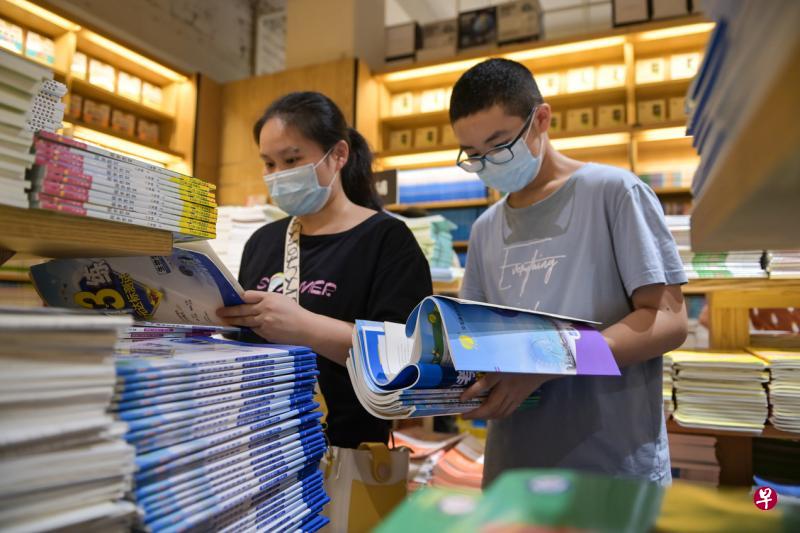
“减负”新法的可执行性以及对教育症结治标不治本遭遇广泛质疑。受访学者指出,只有改革强调横向比较的教育评价体系,才能把学生和家长从焦虑中解放出来。
中国正式把学生“减负”列入法律,明令禁止家长加重孩子学业负担。不过,“减负”新法的可执行性以及对教育症结治标不治本遭遇广泛质疑。受访学者指出,只有改革强调横向比较的教育评价体系,才能把学生和家长从焦虑中解放出来。
中国全国人大常委会会议昨天通过《家庭教育促进法》,新法将从明年1月1日起实施。
据中新社报道,该法律规定地方政府应加强监督管理,减轻义务教育阶段学生作业负担和校外培训负担,畅通学校家庭沟通渠道,推进学校教育和家庭教育相结合。
法律也要求父母合理安排未成年孩子的学习、休息、娱乐和体育锻炼时间,避免加重他们的学习负担,并预防他们沉迷网络游戏。
此外,该法律明确家庭教育的责任主体,规定父母得教育未成年人养成良好的思想、品行和习惯。
中国各地近年来掀起疯狂的“补习风”,许多家长支付昂贵的课外培训费,争取为孩子在决定人生前途的考试中获得优势。
教育“内卷”越演越烈后,中国官方今年7月提出“双减”政策,要求减轻义务教育阶段学生过重作业负担和校外培训负担。官方也对此前迅猛发展的校外培训行业踩急刹车,禁止私营机构提供课外辅导。
家长不配合学校减负措施
不过,“双减”政策让一些家长更焦虑,认为有资源的家庭能直接聘请昂贵的私人家教,最终导致贫富差距扩大。
21世纪教育研究院院长熊丙奇向《联合早报》指出,当前中国整体基础教育仍存在应试化、竞技化倾向,家长的焦虑与教育内卷化由此而生,很多家长担心不送孩子上培训班就会落后。
他说:“在强调横向比较的教育评价体系中,家长总希望孩子多学早学,也不理解学校为何不公布学生排名,并不配合学校的减负措施。”
此次把减轻青少年学业负担列入法律,相信是为呼应“双减”要求,包括让家长更配合为孩子减负。不过,新法律将如何落实,例如如何评判家长是否加重孩子学业负担、惩罚给孩子加作业的家长等,目前都不明朗。
新法律被不少网民视为“鼓励‘躺平’”。有担忧孩子前程的父母发愁,一味强调减负,未来的高考“岂不是成了拆盲盒”。也有家长质疑,不改变高考制度,限制家长和第二课堂,无法减轻教育压力。
熊丙奇认为,一些人把当前学生缺睡眠、重负担的责任推给家长,认为家长过于功利,但根本问题在于教育管理和评价体系。
他说,中国家长的择校焦虑、名校情结,源于义务教育不均衡,教育、学校被等级化。“在对家长进行家庭教育指导同时,仍应进行教育评价体系改革,构建良好的教育生态,这才能把学生和家长从升学应试的焦虑中解放出来。”
不少网民也对家校共育的理念提出质疑,认为大部分家长的家庭时间被工作压缩,建议先解决“996”问题,再谈家校共育。
中国官方今年以来对个人生活的各方面,采取更为家长式的管理。今年8月,官方出台“最严网游新规”,严格限制网游企业向未满18岁者提供服务的时间,防止青少年沉迷于被官媒贴上“精神鸦片”标签的网络游戏。此外,官方也对人们盲目崇拜明星艺人,以及明星粉丝活动进行打击,防止追星扭曲青少年的价值观。
《家庭教育促进法》出台后,一名网民在微博吐槽:“现在家庭教育的失败,已经需要国家干预了吗?”
中国通过家庭教育促进法 要求减轻作业教培负担
10/23/2021
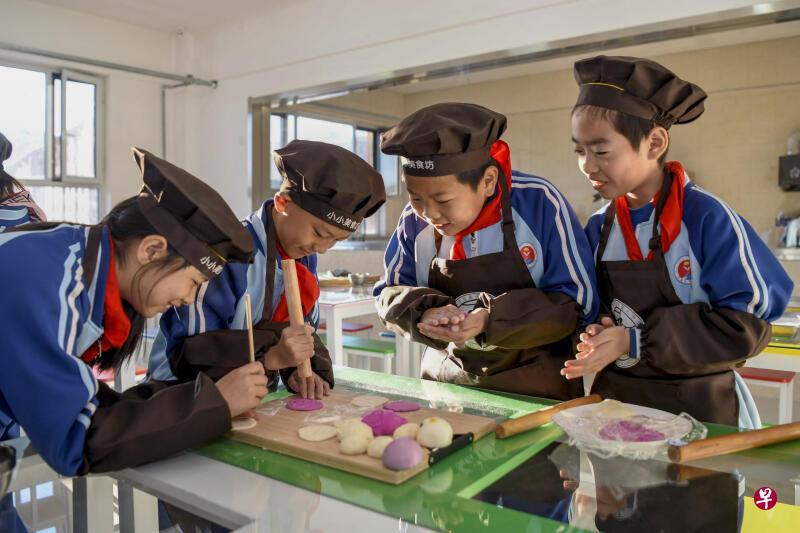
中国今天(23日)通过了家庭教育促进法,规定县级以上地方人民政府应当加强监督管理,减轻义务教育阶段学生作业负担和校外培训负担。
据新华社今天报道,家庭教育促进法今天(23日)在十三届全国人大常委会第三十一次会议上表决通过。
法律明确,未成年人的父母或者其他监护人负责实施家庭教育。国家和社会为家庭教育提供指导、支持和服务。
为呼应减轻义务教育阶段学生作业负担和校外培训负担的“双减”要求,法律规定,县级以上地方人民政府应当加强监督管理,减轻义务教育阶段学生作业负担和校外培训负担,畅通学校家庭沟通渠道,推进学校教育和家庭教育相互配合。
此外,未成年人的父母或者其他监护人也应当合理安排未成年人学习、休息、娱乐和体育锻炼的时间,避免加重未成年人学习负担,预防未成年人沉迷网络。
中国7月出台的“双减”(学生作业负担和校外培训负担)措施,严重冲击市值估计达1000亿美元(1350亿新元)的校外培训行业,该行业之后出现了停课和裁员的情况。
中国教育部:国家政策没有“第一学历”概念
10/02/2021
用人单位招聘时广泛存在的“第一学历”歧视在中国再次受瞩,中国教育部明确答复说,国家教育行政部门相关政策及文件中没有“第一学历”这个概念。
中国教育部9月29日在官网针对网友提问“专升本(非成人高招专升本)毕业后的第一学历是专科还是本科”进行答复时说,学历是指人们在教育机构中接受科学文化教育和技能训练的学习经历,国家教育行政部门相关政策及文件中没有使用“第一学历”这个概念,在管理过程中所说“学历”通常指“个人获得的最高或最后的学历”。
中国教育部这一回应一度登上新浪微博热搜榜,引起网民广泛讨论。
据极目新闻报道,这并非中国教育部首次回应“第一学历”问题,七年前就曾对此问题作过回应。
中国教育部2014年8月在答复“我高中毕业后参军,在部队考上中专军校成为干部,请问我的第一学历是高中还是中专”的提问中也曾回复说,学历是指人们在教育机构中接受科学文化教育和技能训练的学习经历,在管理过程中所说“学历”通常指的是最高或最后的学历,没有使用“第一学历”概念。
所谓“第一学历”歧视,就是部分用人单位不根据应聘者的能力和岗位需求,而是根据应聘者取得的原始学历(第一学历),对应聘者进行的不科学评价和不合理筛选。
在中国,“非985、211高校毕业生不要”“研究生及以上学历”曾是不少用人单位招聘时的明文规定。《中国青年报》上月17日曾发表文章分析说,学历歧视屡禁不止的原因首先源自一些用人单位从“提高招聘效率”层面的考虑,为图省事干脆“一刀切”,把学历作为刚性筛选标准之一,另外,长久以来一直存在的唯学历论也加大了用人单位的学历崇拜,迷信高学历、名校生,盲目将学历与能力划等号。
极目新闻今天在一则评论文章中指出,教育部从官方立场正本清源,可有效遏制用人单位在招聘中有赤裸裸的歧视性表达,但用人单位在招聘中有相当的自主权,可以想见,对于“第一学历”的情结在一段时间内仍会或多或少地存在。
文章提出,要求用人单位不要戴“有色眼镜”只是第一步,整个社会都应该逐步走出“学历情结”的迷思。
文章建议,非全日制教育和研究生教育要提高门槛和培养质量,提升学历的含金量;考生也不要只抱着找好工作的目的去提升学历,更重要的是在提升学历的过程中获得专业、能力、品性方面的成长,让自己真正变得更加优秀,如果学习的目的太功利,难免会把路越走越窄,“想要别人不歧视,首先自己不能歧视自己”。
中国教育部要求加大一对一私教等隐形变异违规行为查处力度
9/23/2021
中国教育部校外教育培训监管司负责人今天强调,要加强与有关部门联络协调,统筹运用好各种方式方法,加大对“一对一”“高端家政”“众筹私教”“住家教师”等隐形变异违规行为的查处力度。
根据人民日报客户端消息,负责人指出,“双减”工作是一项长期性复杂性系统性的工程,必须注重当前和长远相统一,往深里做、往宽里做、往严里做、往远里做,持续用力、久久为功。下一步,一是继续完善配套政策。在督促各地落实好已经出台的配套文件基础上,加快预收费监管、加强培训机构党建等其他配套政策法规的制订进度。研究修订竞赛管理办法,治理打着“国际”旗号的各类竞赛。同时完善“营改非”流程,进一步明确过程中的公示期限、资产确权等政策。研究起草校外培训机构设置标准,在组织机构、从业人员、培训场所、培训内容等方面对学科类和非学科类机构同步作出规定。加快校外培训管理条例立法进度,对非学科类机构管理一并纳入。
负责人说,第二是要强化监督检查。加强与有关部门联络协调,统筹运用好各种方式方法,加大对“一对一”“高端家政”“众筹私教”“住家教师”等隐形变异违规行为的查处力度。
负责人强调,要继续跟踪各地进展,压实地方责任,适时开展“双减”大督查,对工作进展缓慢的省份加强针对性指导帮扶,对履职尽责不到位的地方和人员严肃问责。
此外,负责人指出,要总结推广经验做法。梳理各地好的经验做法,建立典型经验推广制度,遴选推广一批、印发宣传一批、网站公布一批、主流媒体报道一批、深度剖析一批、打造“双减”精品一批,持续深入宣传引导,营造“双减”工作的良好社会氛围。
中国教育部要求查处变相违规开展学科类校外培训问题
9/08/2021
中国教育部今天下发通知,要求坚决查处变相违规开展学科类校外培训问题,包括以咨询、文化传播、“家政服务”“住家教师”“众筹私教”等名义违规开展学科类培训;不具备教师资格的人员违规开展学科类培训,在职中小学教师违规开展有偿补课;以及通过“直播变录播”等方式违规开展学科类培训等。
根据中国教育部网站消息,上述通知指出,“双减”文件印发以来,各地大力推进校外培训治理,取得初步成效。但一些地方出现了学科类培训转入“地下”,换个“马甲”逃避监管等隐形变异问题,影响政策实施,造成不良影响。
通知要求,开展学科类校外培训须在培训主体、培训人员、培训时间、培训地点、培训内容、培训方式等方面同时符合国家相关规定。合规性学科类校外培训一般是指证照齐全的校外培训机构,在登记的培训场所和规定的培训时间,由其所聘请的具有教师资格的培训人员,按照规定的培训方式,面向中小学生提供的符合培训内容要求的学科类培训服务。
通知还要求把准变异形态。对不符合上述合规性要求,具有下列情形之一的学科类培训行为,应依法依规予以查处。
这些情形包括:违反培训主体有关规定,证照不全的机构或个人,以咨询、文化传播、“家政服务”“住家教师”“众筹私教”等名义违规开展学科类培训;违反培训人员有关规定,不具备教师资格的人员违规开展学科类培训,在职中小学教师违规开展有偿补课;违反培训时间有关规定,通过“直播变录播”等方式违规开展学科类培训;违反培训地点有关规定,组织异地培训,在居民楼、酒店、咖啡厅等场所,化整为零在登记场所之外开展“一对一”“一对多”等学科类培训。
违规情形还包括违反培训内容有关规定,以游学、研学、夏令营、思维素养、国学素养等名义,或者在科技、体育、文化艺术等非学科类培训中,违规开展学科类培训;违反培训方式有关规定,线下机构通过即时通讯、网络会议、直播平台等方式违规开展线上学科类培训等。
通知还要求建立辨别机制。对于明显违反相关规定的,各级教育行政部门要旗帜鲜明严肃查处。根据学科类校外培训隐形变异行为的隐蔽性、多变性特点,以及实践中出现的新情况、新问题,地方教育行政部门可以成立专家委员会或指定专业机构,对隐形变异培训行为进行科学辨别。
通知也要求落实属地管理。要按照“谁审批、谁负责”的原则,对学科类培训的隐形变异问题进行查处。同时强化监管执法,充分发挥“双减”工作专门协调机制作用,强化部门协同、条块联动,压实责任。
中国官方将制定校外培训收费标准
9/06/2021
中国政府将制定义务教育阶段线上和线下学科类校外培训基准收费标准和浮动幅度,并要求各地加强收费行为监管。
中国国家发展和改革委员会今天(6日)在官网上发出通知,宣布线下学科类校外培训的基准收费标准和浮动幅度,由省级发展改革部门会同教育部门制定,或经省级人民政府授权由地级及以上人民政府制定;线上学科类校外培训的基准收费标准和浮动幅度,由培训机构办学许可审批地省级发展改革部门会同教育部门制定。各地制定的浮动幅度,上浮不得超过10%,下浮可不限。培训机构在政府制定的基准收费标准和浮动幅度内,确定具体收费标准。
发改委、教育部和市场监管总局也在通知中要求各地加强对培训机构的学科类校外培训成本调查,培训机构人员平均工资水平不得明显高于统计部门公布的当地教育行业城镇非私营单位就业人员平均工资。
各地也要坚持学科类校外培训公益属性,以有效减轻学生家庭教育支出负担为目标,统筹考虑当地经济发展水平、学生家庭承受能力等因素,合理制定基准收费标准和浮动幅度。
教育部也印发《中小学生校外培训材料管理办法(试行)》,强调中小学生校外培训材料不得超标超前,要守牢政治底线,不得出现意识形态问题。
中国知名教培机构创始人被拘 家长投诉停课不退费
8/28/2021
中国教育“双减”政策冲击校外培训行业,知名教培机构兰迪英语的创始人突被刑拘,众多家长投诉停课后未获购课退款。
综合每日经济新闻及界面新闻报道,杭州市公安局滨江区分局官微前天(26日)发布警情通报称,杭州旦悦科技有限公司法定代表人李某,因涉嫌职务侵占罪,已于8月25日被滨江区公安分局依法刑事拘留,案件侦办工作正在开展。
天眼查APP显示,杭州旦悦科技有限公司旗下子品牌包括兰迪少儿英语、abc360英语、大枣口语陪练,法定代表人李晶为公司创始人。
据报道,兰迪少儿英语等机构近日正面临停课但不退费的集体投诉。多名消费者说曾为孩子购买了上万元(人民币,下同)的兰迪少儿英语、ABC360伯瑞英语等课程,8月3日发现无法在平台正常上课,随后课程时断时续,直至本月中旬完全停止。受访者还说,发起退款申请后,至今未得到退款。
有网友发文称,双减政策公布后,李晶7月27日依然在直播间疯狂卖课。
据一份家长自发统计的课程及退费金额统计显示,参与统计的人数已近5000人,涉及北京、吉林、四川、江苏、重庆等多个地区,家长们购买课程的金额多在万元以上,甚至有家长说购买了两年多的课程,停课后没有得到退款,“目前还有326课时没上,价值34000元。”
杭州旦悦科技有限公司前天面向兰迪少儿英语、ABC360英语、大枣口语陪练的用户发布公告称,公司创始人李晶涉嫌职务侵占罪被警方拘留,但公司仍将努力为用户提供服务,积极转型做好产品。
公告说,公司已经上线爱课AI录播课、口语星球AI录播课、360商务英语课和Starlight微课堂等作为替代课程供用户选择。截至25日已与20443名客户沟通,部分客户陆续开始上课。
至于学员家长们的钱能否要回来,天津承讼律师事务所主任律师周阳认为,这要取决于兰迪少儿英语的财务状况,“目前来看最好的方式只有两种,一种是与兰迪少儿英语公司相关人员协商退钱,另一种则是向人民法院起诉。”
自疫情爆发以来,以优胜教育、学霸君、华尔街英语为代表的教育培训机构破产现象频发,周阳认为,“行业存在准入门槛不高,相关执法机构监管不严的情况。此外,部分公司经营理念落后经营不善,缺乏危机意识以及社会责任感,都是导致教育机构暴雷跑路的因素。”
中国「双减」政策 北京关63家补习班 补教业恐现倒闭潮
来源:联合报
8/25/2021
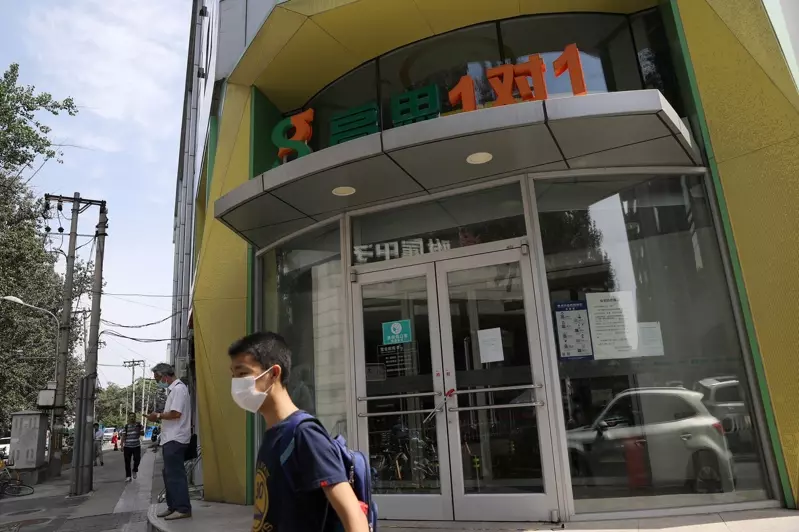
中国近期力推教育“双减”(减少作业和校外补习)政策,北京今年以来已对补教机构罚款逾1500万元人民币,并关停63家无证补教机构。港媒引述业界预测,9月上旬,中国将有大量补习班倒闭。
北京市场监管综合执法总队副总队长贺捷昨指出,今年以来,北京已检查补教机构万余次,处罚172件,罚款共计1534.54万元人民币,责令63家无证补教机构停止办学。
在资本加持下,近年中国补教业兴盛,家长和孩子被迫“内卷”(恶性竞争导致虚耗),教育行业乱象频发。7月24日,中共官方发出通知,要求各地减轻义务教育阶段学生作业和校外培训负担。“双减”政策落地,引发行业地震。
中国补教业在今年暑期迎来“寒冬”。双减政策发布后,中国教育类上市公司年内市值蒸发超过千亿元人民币。新东方─S、新东方在线在港股重挫逾三成,思考乐教育、天立教育等也超跌。
连中国著名连锁补教机构“华尔街英语”也陷破产危机。香港01引述业界预测,9月1日到10日,会有一大批补习班倒闭,先前还抱一丝希望的业者会发现,虽然开学了,补习班却收不到钱。
业者和家长表示,九月确实是新季度收费,政策出炉后,对已交补习费但未完结的课程,会协调退费或是另作安排。此外,已有补习班在倒闭或讨论转型中,从业人员也在讨论转换跑道。
据观察者网报导,对补教机构来说,转型几乎已成必然,素质教育、成人职业教育、与学校合作成为主要选项。
中国线上英语机构阿卡索裁员九成 老板疑似失联
8/18/2021
消息指,中国一对一在线少儿英语机构阿卡索已完成最后一批裁员,接近3000人的总部团队已裁撤90%。一名阿卡索运营员工透露,自上月29日起,裁员已持续半个月之久。
根据腾讯新闻《一线》报道,成立于2013年的阿卡索是一家专注于为低幼儿童提供线上外教的培训机构。据了解,公司已在上周日(15日)完成最后一批裁员,但这些员工多数只拿到了60%的赔偿。当天,阿卡索深圳总部被警方、员工以及街道办的人员围堵,其创始人兼CEO王志彬已经失联。
资料显示,今年39岁的王志彬生于中国大陆,6岁移居香港。曾留学英国,获得电子工程学学士学位与通讯与信号处理学硕士学位。
阿卡索的外教资源来自菲律宾,总数达上万名。由于菲教成本较低,阿卡索的课时单价一般在20块(人民币,约4新元)左右,发展迅猛。从2016年首次对外公布融资消息以来,阿卡索迄今已完成九轮融资。
阿卡索去年还宣布签约中国影视明星夫妇佟大为、关悦为代言人。同年年底,阿卡索获得了由环球网颁布的 “2020年度影响力少儿英语品牌”及“2020年度影响力在线教育品牌”。
在“双减”政策落地一周后,王志彬曾在员工群里发布公开信,表示公司过去经历多次磨难,这次也不会有问题。但没过两天就开始裁员。被裁的首先是销售人员及在试用期的人员,后来是运营人员。
一位阿卡索员工表示,“完全没有任何征兆。”直到今年5月,阿卡索还在正常招人,每天都有新员工入职。
阿卡索今天在官方微信公众平台上还发布了王志彬署名的《致阿卡索全体用户的一封信》,称为响应“双减意见”,公司不得不调整发展战略,进行人员优化,但不存在网传的“跑路”“倒闭”等情况。
上月颁布的中国“双减”政策严禁培训机构聘请在境外的外籍人员开展活动,也不得开展面向学龄前儿童的线上学科类培训。受此影响,包括VIPKID、51talk、久趣英语、阿卡索等多家青少年英语外教直播课机构宣布,不再提供境外外教课服务。目前来看,阿卡索是受震荡最大的公司。
Biden’s China Doctrine?
By Raihan Ronodipuro
7/19/2021
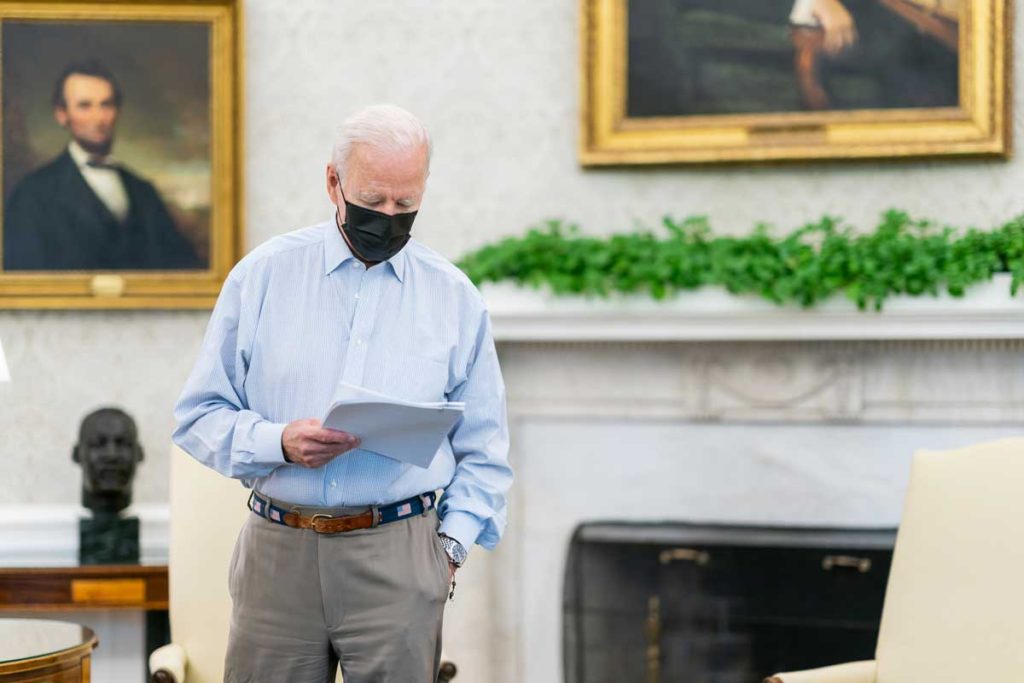
The current issue of “The Economist,” published recently, features a cover story on Biden’s China Doctrine. According to the report, “Bidenism” has converted the rhetoric of the “Trumpism” era into a policy prescription of Sino-US clashes (particularly institutional confrontation), with only one winner.
Biden and his team think that China is not interested in coexisting with the US, and they anticipate an early domination. Because of this, the goal of US policy toward China is to undermine China’s objectives. The US can collaborate with China on topics of mutual interest, such as climate change, but on problems such as the economics, technology, diplomacy, military, and values, the US focuses opposing China’s aspirations by strengthening itself and expanding cooperation with allies.
The report calls Biden’s China Doctrine into doubt. Internally, although Biden wishes to utilize China to unify the two parties and push his own agenda, the Republican Party is clearly not foolish enough to readily embrace Biden’s proposals as long as Biden includes a “China” chapter on the bill’s cover.
Diplomatically, Biden not only misjudged the United States’ present global power, but also miscalculated the losses that American allies would suffer if they faced China. In reality, instead of promoting cohabitation, the US administration has turned the relationship between major powers into a “zero sum” game.
The article provides an illustration of how China is on the verge of dominating the economic sphere. Aside from becoming the world’s largest economy, the number of nations with China as their primary trade partner has nearly doubled that of countries with the United States as their primary trading partner.
When it comes to the Sino-US competition, Germany’s perspective is clearly influenced by economic reasons. Southeast Asian countries turn to the United States only for security, and they look to China for economic growth. As a result, if forced to choose between China and the United States, many countries will go with China.
Biden has continued to utilize China’s difficulties to push the domestic agenda, despite the US’s capacity to re-defend norms. His policy proposals include industrial strategies, government involvement, planning, and control. According to rumors, the Biden administration may employ further subsidies and oversight to ensure that jobs and manufacturing remain in the United States.
So, in effect, Biden’s policy proposals have followed a moderate kind of trade protectionism. If the Biden administration withdraws its friends from China, if the goal is to allow the US to leave more employment possibilities, the allies who have not benefitted will understandably wonder, “Why on earth should I join the US in doing this?”
The cover story of The Economist may be considered to have struck the high points of Bi’s China policy since taking office. The Biden administration appears to have clear stances and propositions on China policy, but both its logic and the actions of relevant officials send a strong signal that it serves only the internal affairs of the United States – as if the United States is unconcerned about the affairs of other countries.
Benefits and emotions For example, Southeast Asia was originally given significant weight in the United States’ Asia-Pacific policy, but when the ASEAN foreign ministers met at the end of May, Anthony Blinken, who had been invited, not only did not attend, but instead decided to travel from Ireland to Israel. Connected to join, however because to technical difficulties, other individuals waited on the scene for over an hour before connecting successfully. Despite the fact that it is only a technical problem, the impression provided to ASEAN nations is that the Biden administration does not value Southeast Asia.
A few weeks later, the same group of ASEAN foreign ministers traveled to Chongqing for the meeting. China not only laid out the red carpet for them, but Foreign Minister Wang Yi also had constructive face-to-face talks with them. When ASEAN nations compare their sentiments to those of China and the United States, they realize how frigid they are.
Aside from technical problems, Blinken opted to visit the Middle East rather than Southeast Asia, which rendered the Biden administration’s “return to Asia-Pacific” rhetoric unconvincing to many countries. The US Department of Defense relocated its lone aircraft carrier in the Western Pacific to facilitate military departure from Afghanistan, sending an incredible signal to US allies.
Similar events took place several times in the six months after Biden entered the stage. For example, when the Indonesian foreign minister visited New York last month for a UN meeting, he requested a foreign minister-level meeting with Blinken, but Blinken wasn’t sure if he couldn’t spare the time or didn’t want to see each other at all.
Other nations’ bewilderment, as well as the United States’ skepticism of the Biden administration, has inevitably been felt. Biden and his staff are now pushing for a solution. Blinken, for example, stated last Sunday that the Biden administration maintained the Trump administration’s policy of rejecting China’s South China Sea sovereignty claims, and that the US and the Philippines have signed a mutual defense treaty, and that any attacks on the Philippines will result in a response from the US.
Trying to win the approval of the Philippines, Brunei, Indonesia, Malaysia, and Vietnam. However, studying Pompeo will not help the US diplomatic position. If Biden’s China policy proposal continues to follow the thinking and operations of the Trump era, it may face significant domestic and foreign problems.
US must outcompete China for a stable relationship: Daniel Russel
Beijing’s aggression comes from perception that America is declining, former official says
TSUYOSHI NAGASAWA, Nikkei staff writer
7/10/2021
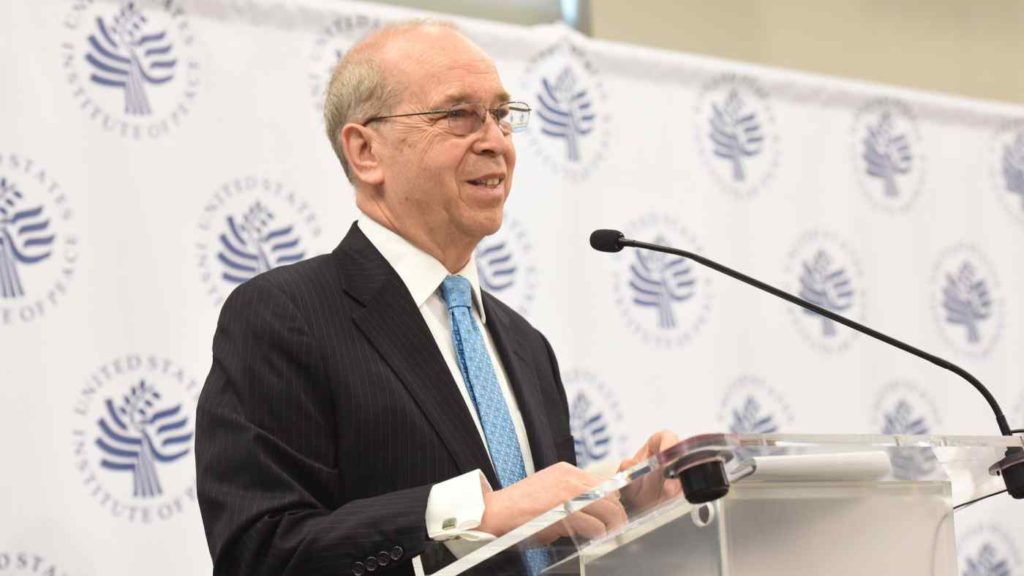
WASHINGTON — The secret visit of U.S. Secretary of State Henry Kissinger to Beijing on July 9-11, 1971, kicked off an American policy of engagement with China. Fifty years later, with China on track to overtake the U.S. economy as early as 2028, bilateral relations are at a crossroad.
In an interview with Nikkei, Daniel Russel, former U.S. assistant secretary of state for East Asia and Pacific affairs during the Obama administration, said the nature of the relationship is changing, and it would be wrong to assume that Washington would return to the “good old days,” supporting China’s growth while making an effort to avoid friction and confrontation.
But Russel, now vice president for international security and diplomacy at the Asia Society Policy Institute, also stressed that aiming for regime change in Beijing is unrealistic and unwise, and would be in line with the “catastrophic” failures of attempted regime changes in the Middle East.
Edited excerpts from the interview follow:
Q: Since Kissinger began an engagement policy with China in the 1970s, the U.S.-China relationship has been relatively stable. The U.S. has invited China into the international system. Looking back, how do you evaluate the pros and cons of this policy?
A: If we took a step back and looked broadly at the historical record, we see that the United States deliberately chose a policy of engaging China and supporting its development, first back in 1972 under President Richard Nixon, where this was part of the strategy for containment of the Soviet Union, but then again in the ’90s, when Bill Clinton was president, after the end of the Cold War, the collapse of the Soviet Union. There was a second policy of engaging China that led up to the entry of China into the WTO.
From the Clinton era on, America’s policy toward China was based on the view that a stable China, a prospering China, would serve the best interests of the United States, in part because a weak China, or an insecure China, would likely pose a lot of risks to U.S. interests and to our allies.
I’ve never heard a persuasive argument that it would have been better to do something different than engagement, at those junctures. The United States made a common-sense decision, to try to engage China and to shape its behavior, to integrate China and to give it a stake in the international system, that the United States had largely designed.
And, while people hoped for political liberalization, I don’t think that political liberalization was the reason that the U.S. government and other governments took this approach, because what was the alternative?
Who is going to argue that an effort to isolate China and to contain China, or to destabilize China would have been a better strategy? It would have been a recipe for disaster.
Today, there is a kind of new conventional wisdom that is based on the view that cooperation with China is impossible, that engagement with China is a failure.
If you look at the historical record, that’s just not defensible, that’s not true.
But that doesn’t mean that we can go back to the “good old days” where we tried to support China’s growth, where we made an effort to avoid friction and confrontation.
There are two reasons for this.
In the past, as long as there was a large disparity, a gap, in military power and economic power between the two countries, the relationship was reasonably stable. But China has become much more economically successful and much more militarily and technologically capable. China is now close to being a peer power to the United States, which it never was.
Secondly, in the Xi Jinping era — which now is about almost nine years — China’s leadership has become more assertive, more ideological, and more brazen, more overt, in challenging global norms and challenging U.S. leadership. We’ve seen bullying behavior intensify by China.
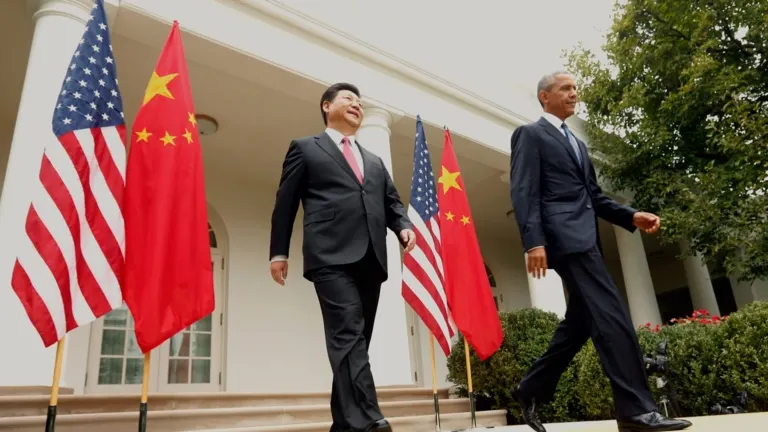
Q: What were negotiations with China like in the years of President Barack Obama?
A: We had two very different experiences with the Chinese. On the South China Sea, Obama had very direct, very blunt, discussions with Chinese President Xi Jinping repeatedly, from 2013 and the Sunnylands meeting on, each time more forcefully warned Xi that China’s island building, its reclamation, its activities, were creating risk, and that the United States had a responsibility to the defense of the Philippines and more broadly had a strong commitment to freedom of navigation, and could not accept efforts by China to claim the so-called nine-dashed line, or to develop outposts in international waters, and that this was damaging the U.S.-China relationship.
Finally, in the meeting in 2015, Xi made an assurance, and he made a public assurance as well, that China would not militarize the outposts that it built.
But, in that case, China did not ultimately honor that commitment, and the problematic behavior continued. And it had a very damaging effect on U.S. relations with China.
The issue of cyber theft, and particularly the Chinese government’s sponsorship of cyber-enabled theft of American intellectual property from companies, that was a different experience, because for years Obama raised this issue with Xi and warned of consequences, and told Xi that, although China was denying it, the United States knew that China was conducting these attacks, and that they couldn’t hide from us.
And finally, the Chinese saw evidence that the United States was preparing to take very severe action in retaliation for this, and the Chinese leadership recognized that they were reaching a dangerous, critical point, and so they sent to Washington the top security official in China, Meng Jianzhu, who came with instructions: don’t come home without an agreement.
And he stayed in Washington for several days. He met with the U.S. government team. And you may remember that the U.S. and China issued a four-point agreement. In that agreement, China essentially acknowledged that this cyber theft had occurred, committed to end it, and made some public commitments that they did implement, they did honor.
For several years after that, the U.S. agencies that were monitoring cyberattacks formed a judgment that China had, in fact, scaled back significantly the attacks that at least the government, the state, was supporting.
Q: Based on those lessons, how should the U.S. approach China?
A: My judgment is that Chinese behavior has become much more troubling and dangerous as Chinese leaders have begun to believe that they are as strong as the United States, that they are getting stronger and the U.S. is getting weaker.
I don’t think that it is wise or feasible to pursue a strategy of weakening China. Instead, it is necessary and wise to pursue a strategy of strengthening the United States and its allies because, as I pointed out before, when the power differential between the United States and China was wider, the relationship was very stable.
As long as the Chinese perception is that the United States is weak, is on the decline, is withdrawing from its traditional role in shaping and often leading international affairs, in rules-setting and so on, and has abandoned the sort of moral high ground that gave the United States so much soft power over the decades, China is incentivized to challenge more directly.
If and when the Chinese leaders see more evidence that the United States is demonstrating resilience, is renewing and reinventing itself, that the overall strength of the democratic communities is growing, not shrinking, the Chinese leaders will be much more open to compromise. They will be much more flexible, much more careful, in their behavior.
Chinese leaders are Leninists and Leninists respect strength and have contempt for weakness.
If the United States, over the course of this year, shows, for example, extraordinary ability to stop the spread of COVID-19, an extraordinary ability to develop vaccines that have 96% to 97% effective rates, demonstrates the ability to manufacture billions of doses and make them available to countries around the world, whereas China, despite its very strict and draconian controls, now continues to battle emerging cases of the delta variant, and the Chinese vaccine, Sinovac, which they have distributed around the world, is now revealed to be far less effective in preventing COVID than advertised, that’s a way in which the United States is already demonstrating its strength.
It is already outcompeting. We’re not hurting China. We’re not blocking China. But we are outperforming China.
Q: You talked about the leadership of Xi Jinping himself. How is he different from former presidents Hu Jintao and Jiang Zemin before him?
A: Jiang Zemin and Hu Jintao were not democrats; they had no interest in sharing power. But they were also pragmatists, and they were continuing the tradition of Deng Xiaoping, the tradition of “hiding and biding,” the tradition of opening and reform.
Xi Jinping represents a more nationalist and a more ideological strain of Leninism. In the Chinese communist system, he is clearly representing those who believe that more control is the right answer, and that political liberalization is a recipe for disaster that China cannot afford.
Q: China hawks in the U.S. have argued that the biggest problem is the Chinese Communist Party and thus the U.S. should seek regime change.
A: Number one, the people who are advocating regime change are the very people that have experimented with regime change in Iraq, in Libya, and other parts of the world. And, in every case, it has been a catastrophic failure. It’s not only that it didn’t succeed; it’s that it created immense problems in the country and immense problems in the United States.
The United States does not have the power to overthrow the Chinese Communist Party, and we know from experience that, even if we were successful, the consequences are unpredictable and immensely dangerous.
We can certainly hope for a change and an improvement. There’s much that we can do to bolster civil society within China, and much we can do to help strengthen institutions other than the Chinese Communist Party, in China.
There is a lot of pressure that can be applied externally on the Chinese leadership to limit their behavior. But the notion of the United States reaching in and changing the government in China is unrealistic and unwise.
Q: Is there a similarity between the current situation and the 1970s, in the sense that the Biden administration is now seeking a stable and predictable relationship with Russia so as to focus more on China and try to drive a wedge between China and Russia?
A: The big difference in the 1970s was that Moscow and Beijing were in an intense rivalry and were virtual enemies. Another difference was that the U.S. and the Soviet Union were in a very significant Cold War, in which we had very little economic or other mutual dependencies and were largely separated into independent blocs, and we were competing around the world for influence, in a very direct way.
Today, Russia is a relatively weak power that is largely focused on making problems, making mischief for the U.S. and for the West.
And the relationship between Moscow and Beijing is very cooperative, very collaborative. And unlike the Soviet Union, China is well integrated into the global system, the multilateral system, and the degree of economic and technological integration between China, the United States, and the rest of the West, is unimaginably large.
So, I think, in those respects, we’re in a very, very different world. And, while it is problematic for the United States when China and Russia cooperate in causing problems for us and our friends, and while there would be some virtue and value in trying to provide incentives for Moscow to moderate its behavior and to refrain from that kind of mischief-making, I don’t think there is any prospect for a kind of fundamental alteration of the triangular relationship, the way that Kissinger and Nixon changed it in 1972.
China beating US by being more like America
Cultivating human capital will be essential if the US rather than China is to be the base of the next industrial revolution
By BRANDON J WEICHERT
4/25/2021
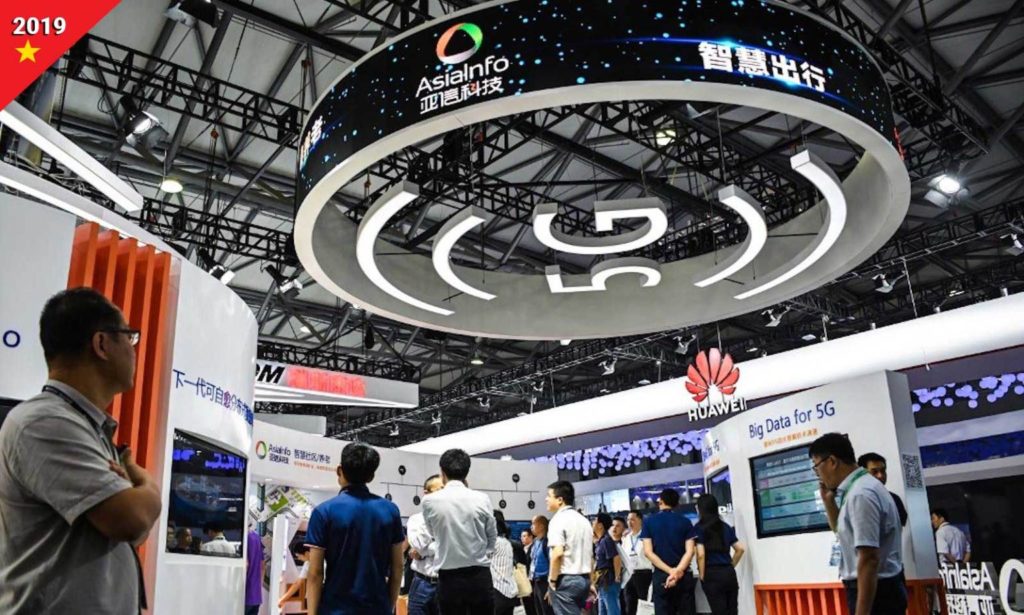
The United States transitioned from an agrarian backwater into an industrialized superstate in a rapid timeframe. One of the most decisive men in America’s industrialization was Samuel Slater.
As a young man, Slater worked in Britain’s advanced textile mills. He chafed under Britain’s rigid class system, believing he was being held back. So he moved to Rhode Island.
Once in America, Slater built the country’s first factory based entirely on that which he had learned from working in England’s textile mills – violating a British law that forbade its citizens from proliferating advanced British textile production to other countries.
Samuel Slater is still revered in the United States as the “Father of the American Factory System.” In Britain, if he is remembered at all, he is known by the epithet of “Slater the Traitor.”
After all, Samuel Slater engaged in what might today be referred to as “industrial espionage.” Without Slater, the United States would likely not have risen to become the industrial challenger to British imperial might that it did in the 19th century. Even if America had evolved to challenge British power without Slater’s help, it is likely the process would have taken longer than it actually did.
Many British leaders at the time likely dismissed Slater’s actions as little more than a nuisance. The Americans had not achieved anything unique. They were merely imitating their far more innovative cousins in Britain.
As the works of Oded Shenkar have proved, however, if given enough time, annoying imitators can become dynamic innovators. The British learned this lesson the hard way. America today appears intent on learning a similar hard truth … this time from China.
By the mid-20th century, the latent industrial power of the United States had been unleashed as the European empires, and eventually the British-led world order, collapsed under their own weight. America had built out its own industrial base and was waiting in the geopolitical wings to replace British power – which, of course, it did.
Few today think of Britain as anything more than a middle power in the US-dominated world order. This came about only because of the careful industrial and manipulative trade practices of American statesmen throughout the 19th and first half of the 20th century employed against British power.
The People’s Republic of China, like the United States of yesteryear with the British Empire, enjoys a strong trading relationship with the dominant power of the day. China has also free-ridden on the security guarantees of the dominant power, the United States.
The Americans are exhausting themselves while China grows stronger. Like the US in the previous century, inevitably, China will displace the dominant power through simple attrition in the non-military realm.
Many Americans reading this might be shocked to learn that China is not just the land of sweatshops and cheap knockoffs – any more than the United States of previous centuries was only the home of chattel slavery and King Cotton. China, like America, is a dynamic nation of economic activity and technological progress.
While the Chinese do imitate their innovative American competitors, China does this not because the country is incapable of innovating on its own. It’s just easier to imitate effective ideas produced by America, lowering China’s research and development costs. Plus, China’s industrial capacity allows the country to produce more goods than America – just as America had done to Britain
Once China quickly acquires advanced technology, capabilities, and capital from the West, Chinese firms then spin off those imitations and begin innovating. This is why China is challenging the West in quantum computing technology, biotech, space technologies, nanotechnology, 5G, artificial intelligence, and an assortment of other advanced technologies that constitute the Fourth Industrial Revolution.
Why reinvent the wheel when you can focus on making cheaper cars and better roads?
Since China opened itself up to the United States in the 1970s, American versions of Samuel Slater have flocked to China, taking with them the innovations, industries, and job offerings that would have gone to Americans had Washington never embraced Beijing.
America must simply make itself more attractive than China is to talent and capital. It must create a regulatory and tax system that is more competitive than China’s. Then Washington must seriously invest in federal R&D programs as well as dynamic infrastructure to support those programs.
As one chief executive of a Fortune 500 company told me in 2018, “If we don’t do business in China, our competitors will.”
Meanwhile, Americans must look at effective education as a national-security imperative. If we are living in a global, knowledge-based economy, then it stands to reason Americans will need greater knowledge to thrive. Therefore, cultivating human capital will be essential if America rather than China is to be the base of the next industrial revolution.
Besides, smart bombs are useless without smart people.
These are all things that the United States understood in centuries past. America bested the British Empire and replaced it as the world hegemon using these strategies. When the Soviet Union challenged America’s dominance, the US replicated the successful strategies it had used against Britain’s empire.
Self-reliance and individual innovativeness coupled with public- and private-sector cooperation catapulted the Americans ahead of their rivals. It’s why Samuel Slater fled to the nascent United States rather than staying in England.
America is losing the great competition for the 21st century because it has suffered historical amnesia. Its leaders, Democrats and Republicans alike, as well as its corporate tycoons and its people must recover the lost memory – before China cements its position as the world’s hegemon.
The greatest tragedy of all is that America has all of the tools it needs to succeed. All it needs to do is be more like it used to be in the past. To do that, competent and inspiring leadership is required. And that may prove to be the most destructive thing for America in the competition to win the 21st century.
Source: https://asiatimes.com/2021/04/china-beating-us-by-being-more-like-america/







